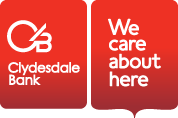Strategies to quickly scale your business
< back to all business news articles
05/03/2018
Growing a business is one of the most fundamental goals for all business owners - or it should be. Successful businesses are those that are always looking for opportunities to grow, and making the most of them.

Scalable growth is balancing the increase of your profits against the increasing costs of manufacturing your products or delivering your service. If you can ensure the most efficient systems and processes for what you're selling, the more profits you'll see and the more scalable your business will be.
First, can you scale with what you've got?
If you can improve your business's ability to do more internally - such as speeding up production and increasing the efficiency of your systems and processes - then you're going to reap the rewards in terms of manageable growth. Conduct a review of your current operation and decide how you're going to improve it:
- Contractors – getting a third party on board can increase your capacity in the short term.
- Equipment – can you extend the operational hours of existing equipment by running double shifts?
- Staff – make sure your employees are working efficiently and that if they don’t have the necessary skills they’ll need for upcoming growth, look at training.
- Pricing – if you're seeing an increased demand for what you're selling, can you scale profits by increasing prices where appropriate?
Increasing your capacity while improving the efficiency of your systems and processes means you're successfully scaling your business for growth, and you're going to notice it in your profit margins.
Second, what can add to increase capacity?
While it’s important to maximise your internal resources, scaling your business for growth almost always means adding to your operations in terms of staff, equipment, facilities and finance.
The right staff
Making sure you have the right staff is critical for the growth of any business. If there are vital skills missing amongst your staff, look at upskilling them through training, or hiring someone with the knowledge and experience you need.
It’s also crucial to have the staff you need to meet increased demand. If you’re manufacturing coffee tables and your orders are increasing to the point where your current staff can’t keep up, then it’s definitely worth hiring more.
Equipment and facilities
You don’t want your business growth to be hampered by not having the right equipment on hand to do the job, or the facilities to do it in. If you’re looking to increase production of 50 coffee tables per week to 500, it’s likely that the location you’re in and the facilities you’re using won’t be adequate to meet the new demand.
- Location – look at moving to a new, larger location, or opening another branch of your business.
- More equipment – to increase production on a scalable level, you’ll need the equipment. It’s worth investing in updated machinery to increase output.
- Suppliers – if you’re going to be needing more raw materials to produce what you’re selling, make sure suppliers can meet the increased demand. If not, find one that can.
Tracking customers, building relationships
Your customer experience must also be able to scale. Doubling sales will double customer queries, complaints, calls, web traffic and all sorts of demand on your time.
Review your customer relationship system, possibly upgrading so you can track buying behaviours and preferences, maintain contact and develop customer loyalty programs.
Remember, your customers are the most vital component to your business and to its growth, so engaging with them, listening to them and rewarding them is essential no matter how large you grow.
Funding for scalable growth
When it comes to increasing capacity for scalable business growth, you’ll almost always need additional financing. Even if your business is enjoying a healthy cash-flow, financing options for expansion are worthwhile to explore if you don’t want to use up all your working capital on long term assets.
There are a number of finance options available to small businesses in the UK, from banks and finance companies to investors and government grants. Whether you want to expand your employee base, buy a new facility or develop a new product, one of the key elements in taking a company to the next level is knowing the kind of capital you need to support that growth.
Summary
It comes down to two main points: what you can do with what you’ve already got, and what you’ll need to add in order to achieve scalable business growth. Don’t forget that ‘scalable’ means increasing all parts of your business to cope with extra demand, and ideally it’s ‘manageable’ growth. Reviewing your internal system and processes to ensure maximum efficiency is important, but even more so is making sure you have what you need in terms of staff, facilities, equipment and capital to achieve that growth.
If you’re planning to increase output or offer expanded services, then making sure you have the capacity to actually deliver is essential.
POSTED IN: Savings,Growth,Cash Flow
SHARE
Related Articles
You can find impartial information and guidance on money matters on the “MoneyHelper” website.
Clydesdale Bank is covered by the Financial Services Compensation Scheme (FSCS), Find out more.


